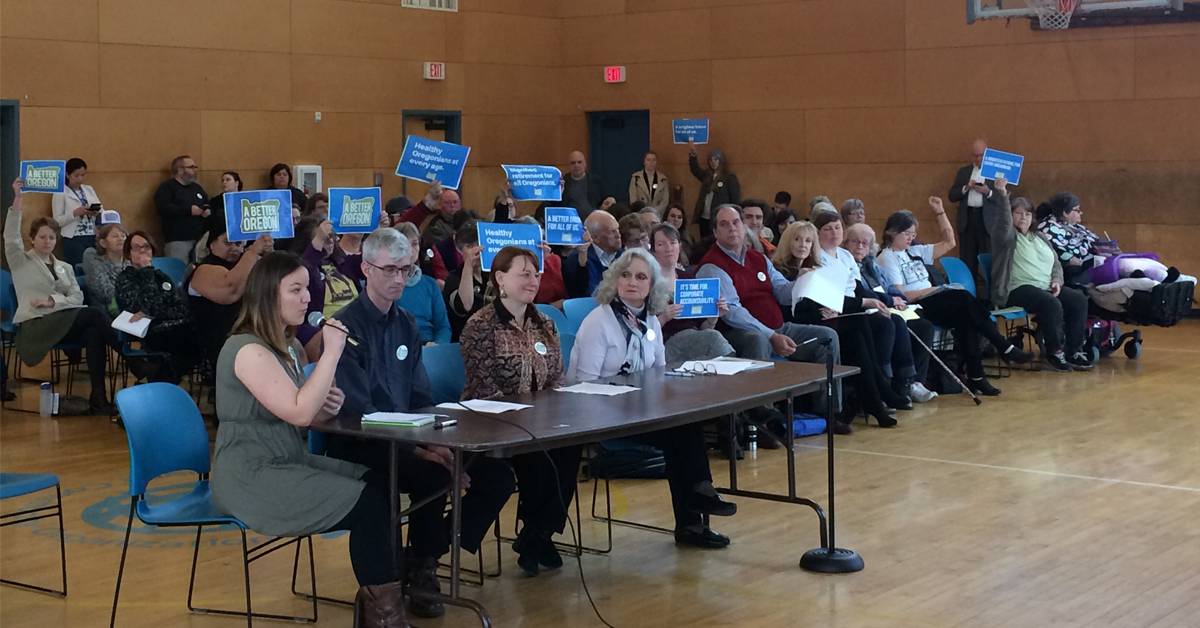For a decade, Ellen Dammel acted as an unpaid homecare worker for her husband, John Peterson. That change last year when her degenerative bone disease advanced to the point that she needed her own care. Thankfully, the Oregon Homecare Program has allowed Ellen and John to access the care they need — but now, major cuts threaten the services they rely on to survive.
“What makes this more difficult is that sometimes I need to look after my grandchildren so my daughter can work, since she can’t find affordable daycare in Lincoln City,” Ellen said. “If I didn’t have my caregiver Jodi’s help, it would mean I would be in constant pain and unable to care for and have fun with my grandchildren.”
“Legislators need to increase the state revenues instead of cutting essential services for me and other Oregonians needing help,” John added. “It is not alright that we are looking at cutting services, while being last in corporate taxes.”

Ellen, John, and hundreds of Oregonians — parents, caregivers, educators, disability advocates, and students — came together at budget town halls in Tillamook and East Multnomah County this weekend to send our legislators a message: No service cuts while Oregon ranks dead last in corporate taxes! Oregon’s status as a top corporate welfare state has caused a $1.8 billion budget deficit, and unless revenue is raised, cuts will affect every Oregon family. Hundreds of thousands of Oregonians are at risk of losing their health care, class sizes continue to balloon, and seniors and people with disabilities face drastic cuts to assistance programs.
Alicia Hawkins came to the Tillamook town hall with her two-year-old son, Liam, who receives Early Intervention and Developmental Disability services. In rural communities, specialized care and instruction is limited and not always readily available.
“We count on OHP Medicaid to meet my son’s medical and therapy needs,” Alicia said. “Early intervention and early childhood special education are already stretched thin and need more funding. Any cuts would be very detrimental to my son’s development.”

At the East Multnomah town hall, Lupita Velazquez, a Social Sciences student at Portland State University, advocated for students who cannot afford rising tuition costs. Lupita chose to go to PSU because she was awarded scholarships to offset the cost, but she’s concerned that won’t be enough.
“Now my debt is $3,420, but if tuition were increased, it would significantly grow and bring back the uncertainty of whether I am going to be able to finish my degree,” Lupita said. “As a Latina, first generation and low-income student, it is my dream to someday have a college degree, a good stable job and to dedicate it to my parents who got me to where I am today.”
At the end of the East Multnomah town hall, several legislators stood up to thank those who provided testimony and offered their agreement: “We aren’t going to be able to cut our way out of this problem.”
If more Oregonians like Ellen, John, Alicia, and Lupita take action and share their stories we could end corporate welfare and invest in our critical services. Don’t miss your opportunity to speak up for the programs and services we all rely on — share your story today!





